[vc_row][vc_column width=”2/3″][vc_column_text]
RCRC’s Southern Program positions RCRC to coordinate long-term organizing and advocacy on reproductive health, rights and justice. This role is vitally needed in the challenging moral and political environment of the southern states.
[/vc_column_text][dt_fancy_title title=”Our Goals in the Region” title_size=”h4″ title_color=”custom” separator_style=”thick” separator_color=”accent” custom_title_color=”#623393″][vc_empty_space height=”25px”][vc_column_text]
- Build coordination and collaboration between religious and reproductive justice leaders.
- Establish a multi-issue, multi-cultural, multi-generational movement that gives all what they need to live healthy, happy and fulfilling lives.
- Form networks led by people of color in accordance with reproductive justice principles.
- Increase the capacity of faith leaders to engage and mobilize in response to pressing issues in their states.
- Bring a stronger progressive religious voice to policy and organizing across the South.
[/vc_column_text][dt_fancy_title title=”Our Activities in the South” title_size=”h4″ title_color=”custom” separator_style=”thick” separator_color=”accent” custom_title_color=”#623393″][vc_empty_space height=”25px”][vc_column_text]RCRC’s relationship-building, advocacy and communications activities in the South include:
- Acting as liaison between faith leaders and advocacy groups in Southern states working on social, racial and reproductive justice issues such as sex education, religious freedom and maternal mortality.
- Rallying with other women of color organizations outside the U.S. Supreme Court as it heard the Whole Woman’s Health vs. Hellerstedt case, which ultimately ruled the Texas law HB2 unconstitutional.
- Advocating and communicating at the Georgia State Capitol during Georgia’s legislative session. With other progressive organizations, RCRC opposed the state’s Religious Freedom Restoration Act and state funding for crisis pregnancy centers which in practice counsel women not to consider the option of abortion. We also joined in calling for a ban on assault weapons.
- Developing a program to engage Black pastors in the South in reproductive justice.
- Presenting discussions and trainings on the intersection of faith and reproductive health, rights and justice at conferences and organizations in the region.
- Co-hosting a screening and expert panel discussion with RCRC leaders about the documentary film “Trapped,” about highly restrictive state laws on access to abortion clinics, especially in the South.
[/vc_column_text][/vc_column][vc_column width=”1/3″][dt_fancy_title title=”Why We Concentrate on the South” title_size=”h4″ title_color=”custom” separator_style=”thick” separator_color=”accent” custom_title_color=”#623393″][vc_empty_space height=”25px”][vc_column_text]
- The status of women’s health in the South compares poorly to that of other U.S. regions.
- Access to reproductive health services is very limited.
- The South is an incubator for conservative political strategies which spread across the country.
- Religious and faith narratives in the South oppress marginalized people such as women, people of color and LGBTQ people.
- Issues of faith and racial justice have deep impact on people’s lives and politics in this region, which is home to the majority of Blacks in the U.S.
[/vc_column_text][/vc_column][/vc_row][vc_row type=”1″ margin_top=”0″ margin_bottom=”0″ padding_top=”55″ padding_bottom=”55″ bg_repeat=”repeat” full_width_padding_left=”40″ full_width_padding_right=”40″ full_width_margin_top=”0″ full_width_margin_bottom=”0″ css=”.vc_custom_1477256289586{margin-bottom: 55px !important;}”][vc_column offset=”vc_col-lg-12 vc_col-md-12 vc_hidden-sm vc_hidden-xs”][vc_column_text]
RCRC’s Clergy and Laypeople Proudly Support:
[/vc_column_text][vc_empty_space height=”20px”][dt_benefits_vc columns_number=”5″ image_background_border=”custom” image_background_border_radius=”100″ image_background_size=”60″ image_background_paint=”accent” icons_size=”28″ icons_paint=”custom” icons_hover_paint=”accent” decorative_lines=”hover” content_size=”small” number=”5″ columns=”5″ dividers=”false” category=”with-captions”][/vc_column][/vc_row]
